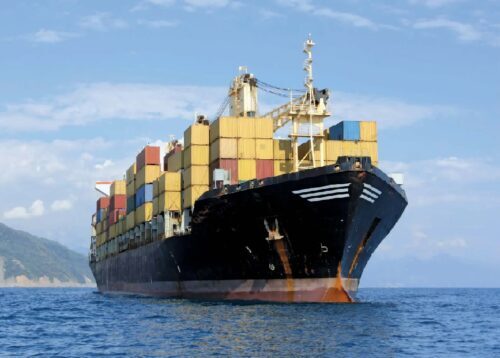The Environmental Calamities that shook the humanity during fifties and sixties were powerful enough to generate serious and widespread sense of responsibility among world nations towards the global environment. Some of these calamities include : The killer smog in New York and London which claimed 5000 lives in 1952; The mercury poisoning due to the consumption of mercury-contaminated seafood in Japan; The extinction of many species of birds due to pesticide poisoning ( that led to the creation of the Silent Spring) ; The collision of an American Bomber carrying four hydrogen bombs, with an air tanker over Spanish territory in January 1966; and, The massive oil spill from the super tanker Tory Canyon in the English Channel in 1967. These and many more tragedies in the environment stimulated the world community to meet on some common platform and to chalk out some solutions to problems that affect the whole world.
GATT and WTO
The expanded form of the abbreviated term GATT is – General Agreement on Tariffs and Trade. It was an international treaty (1948–94) to promote trade and economic development by reducing tariffs and other restrictions. It was superseded by the establishment of the World Trade Organization in 1995. The expanded form of WTO is World Trade Organization. It is an international organization based in Geneva that monitors and enforces rules governing global trade.
Difference between WTO and GATT
WTO had its origin in Bretton woods conference after the end of Second World War. It was founded in 1948 with 23 members by the name of GATT. But in 1995, GATT was rechristened as WTO.
(i). GATT was a provisional legal agreement whereas WTO is an organization with permanent agreements.
(ii). WTO has members while GATT had only contracted parties.
(iii). GATT dealt only with trade in goods while WTO covers services and intellectual property rights as well.
(iv). The real critical distinction between GATT and WTO is creation of a binding dispute settlement system. Under GATT contracting parties could bring cases before international body but there was no effective enforcement mechanism. But in WTO an effective enforcement mechanism exists.
Over the past decade, the international community has paid increasing amounts of attention to the alarming rate of loss in global biodiversity. Pharmaceutical and biotechnology industries are leading the charge for preservation of the potential gold mine of naturally-occurring elixirs nature may still be hiding. In order to help combat many of the world’s great problems including disease and food supply shortages, pharmaceutical and biotechnology industries have rushed into one of the last great uncommercialized frontiers: the genetic structure of living organisms.
The notion of biodiversity has been touted as a mechanism for both discovering new pharmaceutical products and saving endangered ecosystems. Every country will be affected by the evolving intellectual property systems in areas such as food security, agricultural and rural development and for environmental conservation.
Regional trade agreements (RTAs) have become increasingly prevalent since the early 1990s. As of 31 January 2014, some 583 notifications of RTAs (counting goods, services and accessions separately) had been received by the GATT/WTO. Of these, 377 were in force. What all RTAs in the WTO have in common is that they are reciprocal trade agreements between two or more partners
The protection of intellectual property rights is a key element for assessing risks in bioprospecting investments, since products are heavily dependent on their “uniqueness” to recoup costs. Pharmaceuticals, in particular, involve significant capital investment to produce, but once on the market they are very easily duplicated. As a result, the pharmaceutical industry incurred worldwide losses of around $6 billion annually from the pirating of patented medicines in 1992 and this figure has increased ever since.
The biotechnology industry tends to be regulated in industrialized countries through national laws on laboratory practices and the release of living modified organisms outside the laboratory. For instance, intellectual property protection for organisms existed in the U.S. if they have been changed from their natural state, using traditional breeding techniques or recombinant DNA technology.
By inducing new characteristics, unpatentable products of nature can be transformed into patentable products derived from nature. In the U.S. there are three major legislative acts, under which intellectual property protection for plants is available as long as such plants are original, novel, useful and nonobvious. However, there is no intellectual property protection for the plant/genetic/biodiversity resources discovered in nature.
In the pharmaceutical arena, this lack of patent for naturally-occurring compounds is detrimental to corporate initiative since it allows competitors to copy these formulas and prevents the discoveries from recovering their development/discovery costs and yield a profit for investors.
The Uruguay Round of Multilateral Trade Negotiations under the General Agreement on Tariffs and Trade (GATT) has substantially expanded the normal purview of trade agreements to include trade in investment, services and intellectual property. As a result, an Agreement on Trade-Related Aspects of Intellectual Property Rights (TRIPS) has been in effect by majority of the developing and developed nations alike under the World Trade Organization (WTO).
With the adoption of the agreement, signatory states are obligated to adopt a patent system for microorganisms and to establish either patents or some Sui generis from intellectual property for plants.
However, extending intellectual property rights to genetic innovations is highly controversial. While governments in developed nations, particularly the U.S., defend intellectual property law as just and efficient, many developing nations view it as fundamentally unjust a means by which resources and wealth are transferred from them to developed countries with the imprimatur of legality.
Preferential trade arrangements
Preferential Trade Arrangements (PTAs) in the WTO are unilateral trade preferences. They include Generalized System of Preferences schemes (under which developed countries grant preferential tariffs to imports from developing countries), as well as other non-reciprocal preferential schemes granted a waiver by the General Council.
Liberalization and Globalization
(I). Liberalization: The relaxation of restrictions, usually in areas of social and economic policies is called as Liberalization. Most often this term is applied to economic liberalization like trade liberalization or capital market liberalization. The Economic Liberalization is often associated to privatization. However, the two terms are quite separate from each other.
Sometimes a government imposes restrictions on some economic activities. Such a policy of the government is called as Policy of Restrictions. Sometimes the government removes some of those restrictions. This policy of removing some restrictions is called as the Policy of Liberalization. In fact, any economic system is never made free from restrictions. However, many times Private Economic Activities remain free from restrictions. The Government of India adopted the Policy of Economic Liberalization on 24 July, 1991.
There are two components of Liberalization-
(i).to allow the private sector to run those activities restricted earlier only to the Public Sector, and
(ii). to relax all the rules and regulations restricting the growth of the Private Sector. For example: there were some materials that were not allowed to be manufactured by a private sector enterprise without the permission of the government. But now the restrictions have been lifted up for most of the goods except alcohol, cigarettes, hazardous chemicals, Industrial Explosives, drugs and pharmaceuticals and electronic aerospace.
Under Liberalization, the private sector has been made free from many regulations like- Industrial Licensing, price regulation and distribution, investment by large business companies etc.
(II). Globalization: The emergence of a global society in which economic, political, environmental, and cultural events in one parts of the world quickly come to have significance for people in other part of the world, is called as Globalization. The term Globalization was used for the first time in the year 1944 but in economics, it is in regular use only since 1981.The term was widely used for the first time in 1983 in the “Harvard Business Review” by Theodore Levitt in his article entitled “Globalization of Markets”. Currently, globalization is an umbrella term used for a complex series of economic, social, technological political and cultural changes around the world.
The Globalization is marked by-
(i). Advances in communication, Transportation and Information Technology;
(ii). Growing Economic, Political, Technological and Cultural connections among individuals, communities, business and governments around the world.
The Globalization incorporates growth of multinational companies and Transnational companies (TNCs). Multinational companies (MNCs) are business systems that function in many countries. Translational companies are business concerns that function in the global markets. The world trade and finance in globalization are regulated by international institutions.
The Globalization has following components-
(i). Reduction of Trade Barriers: In globalization, trade barriers are reduced so as to allow free flow of goods to the international markets.
(ii). Free flow of Technology: Globalization creates an environment through which free flow of technology takes place from country to country.
(iii) Free movement of Labour: Globalization creates an environment that allows labour to move anywhere in the world.




